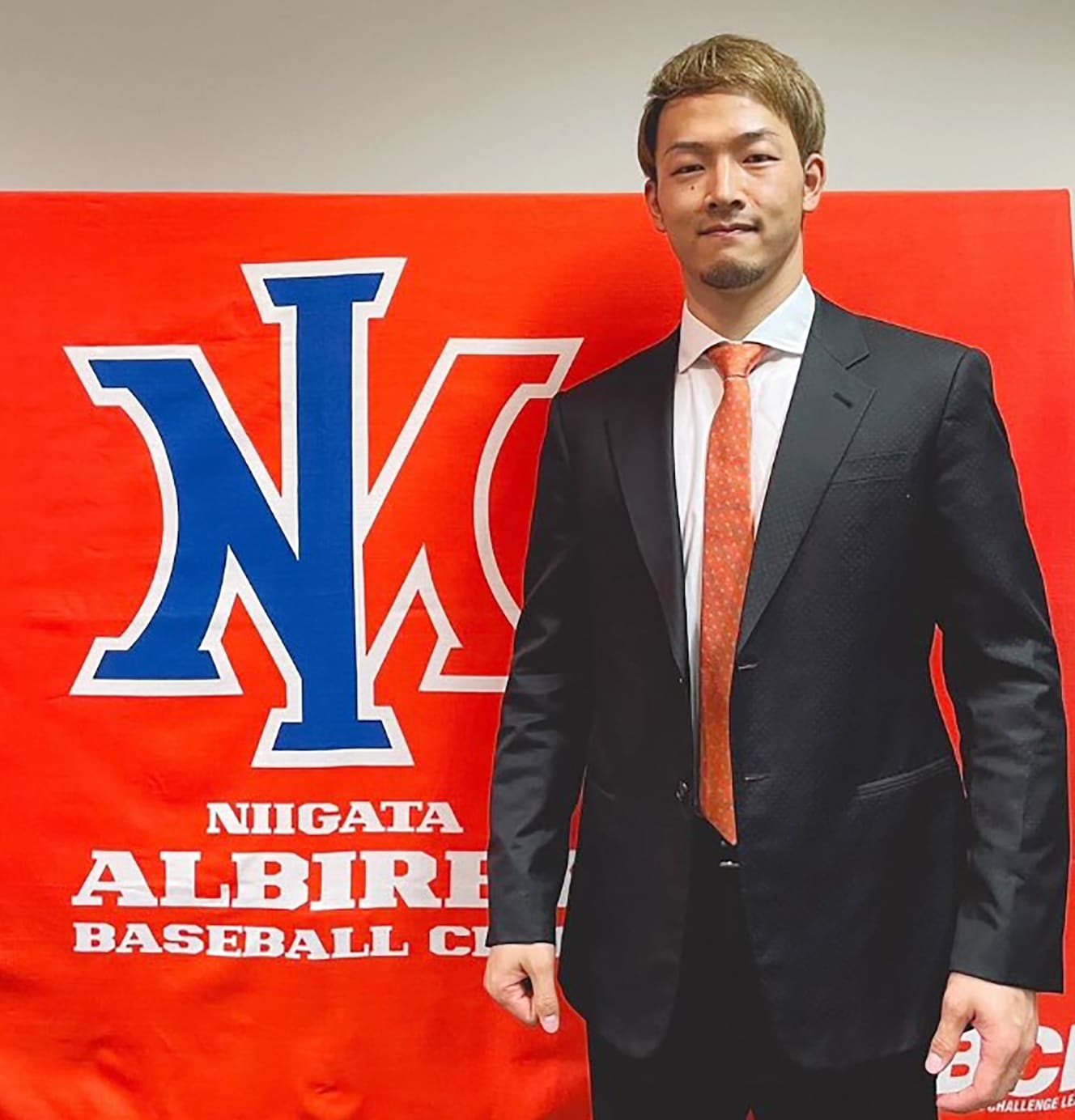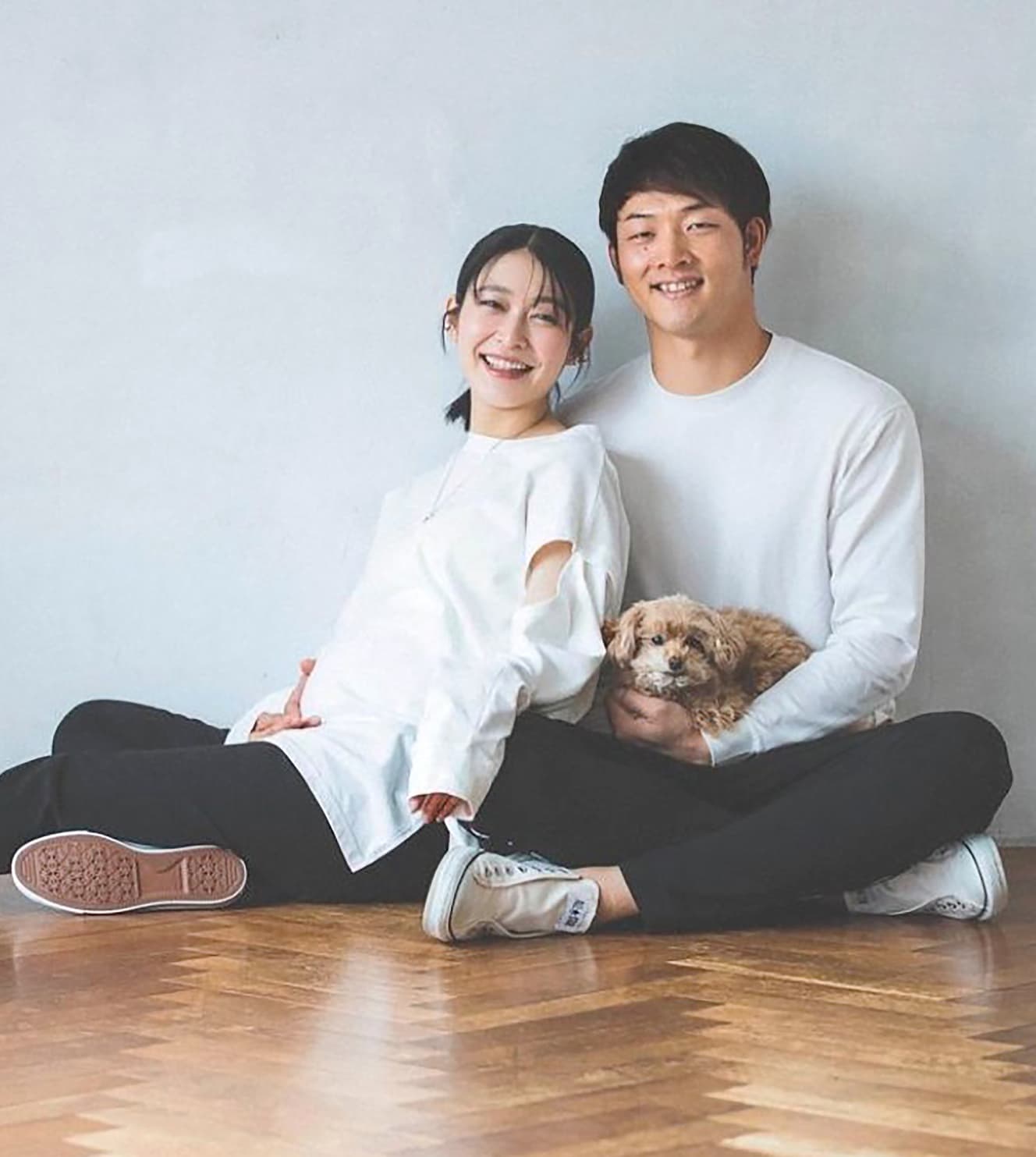Former Samurai Japan Player Kazuki Yabuta Joins Niigata’s New Baseball Team
Interview with Kazuki Yabuta, former Carp player, who was a model for his wife and won the title of the highest winning percentage with 15 wins in 2005. However, his "brilliance" only lasted for one year, and he was "fired" in the off-season last year.

“Being released from the team carries a very negative impression, doesn’t it? But I’m still only 31 years old. I’ve only lived a third of my life. If I have to quit baseball, it’s just a matter of finding a new job. It’s not that negative.”
Kazuki Yabuta (31), who contributed to the consecutive championships of the Hiroshima Toyo Carp by winning 15 games in his third year as a professional in 2017, received a notice of being released from the team after six years had passed since then, at the end of last season.
After taking a tryout, he immediately received an offer from the Oisix Niigata Albirex (“Niigata”), a new entrant to the Eastern League this season. He was also invited to join an overseas team, but he decided immediately to join Niigata, saying, “If I can return to an NPB 12 team with good results, I can encourage the players who are out of the lineup.”
“My wife (model Karuna) said, ‘It’s a chance to play baseball in different environments.’ I think I’ll be going to Niigata alone, but she’ll also be able to return to work. I believe she’ll support me in a different way than before.”
During his student days, he was relatively unknown. He didn’t participate in the Koshien tournament at Okayama Rikudai Fuzoku High School due to a right elbow fatigue fracture, and he only pitched in two league games during his four years at Asia University. Nevertheless, his talent caught the eye of Hiroshima Carp owner Hajime Matsuda when Yabuta’s mother, who happened to be a taxi driver at the time, recommended her son to him. This led to his recruitment in the 2014 draft as a second-round pick.
“I had seniors like Naoyuki Uwasawa (33, Softbank) who was two years ahead of me, Arai Kuri (32, Hiroshima) who was one year older, and Yamasaki Yasuaki (31, DeNA) who was in the same year as me. I didn’t have as much achievement as them, but I didn’t think I was inferior in terms of ability.”
In his second year with the team, he became a starter at the end of the 2016 season and won three games. The following year, in 2015, he had his moment of awakening.
During his injury-plagued high school days, Yabuta developed a unique form with a small takeback to avoid feeling pain in his elbow. From this form, he unleashed fastballs in the mid-150 km/h range, creating a distinct roar. Mixing in change-ups like cutters and two-seamers, he managed to keep hitters off balance, consistently hitting off the sweet spot of their bats. He went on a streak of six consecutive wins starting from the May 30th game against the Seibu Lions. He even outpitched prominent aces of the time like Tomoyuki Sugano (34) of the Yomiuri Giants and Chihiro Kaneko (40, currently a pitching coach for the Nippon-Ham Fighters’ farm team). With a record of 15 wins and 3 losses, he achieved a remarkable win rate of .833, securing the title of highest win rate. He was also selected for the Samurai Japan national team.
“Winning the title gave me a lot of confidence. I started feeling greedy, thinking that if I could maintain this pitching style, I could definitely keep winning in the future.” He said.
However, the dazzling brilliance of 2017 cast a deep shadow over his subsequent baseball career. Around the start of the 2018 preseason, he began to feel discomfort in his left knee and back during practice.
“The pain would come out when I did intense training. I used to prioritize stepping forward when pitching, but I started feeling anxious about it, and the ball wouldn’t go where I wanted it to.”
He was entrusted with starting roles from the opening of the season but struggled greatly with 15 walks in just two games. Branded with the stigma of being unfit to start, he was demoted to the minor leagues around a month after the season began in early May. Although he achieved a record of 7 wins and 0 losses in the minors, he only made two appearances in the first team after May.
“I think that year was the turning point for whether I could become a star player or not. My pitching velocity hadn’t changed from the previous year, and my muscle mass had increased. Even though people around me in the minors would say, ‘Yabuta is next in line for promotion to the first team,’ I wasn’t getting any opportunities. Instead of looking at wins, losses, or ERA, I was being judged based on the number of walks. At the time, I thought it was the problem with the team using players.”
Seeking results, he experimented with increasing the proportion of cutters in his pitching repertoire, moving away from relying solely on fastballs. However. In the six years following his title win, he only managed to secure four victories. Yabuta found himself not only battling against rivals within the team but also struggling against the afterimage of his former self who had won the title.
“I think I was taken care of by the team for nine years because of that year. However, since 2017, I’ve been judged based on the pitching I had when I won the title. That difficulty was very real.”
In his final professional year in 2023, he felt most suited for starting roles but found no place to work, making just three relief appearances. He felt that chances for first-team appearances were being given to younger players, but he could also understand, acknowledging that he too had been in their position in his younger days.
In Niigata, Yabuta not only aims to regain his shine as a player but also plans to expand the base of the baseball world. He intends to solicit individual sponsors and reach out to industries that have not been associated with baseball before through advertising campaigns on social media. As a new entrant to the league, there is potential to broaden horizons.
“I currently feel that many people are giving up on baseball due to financial concerns. If the scale of each team expands and sponsorship support becomes more substantial, I believe we will see more players returning to baseball.”
By defeating his former team, Hiroshima, Yabuta has set a new goal of securing victories against all 12 teams in the league. The notice of being released from the team marks a new beginning in his life. To prove this, Yabuta will confidently stride forward into his second life.


From the February 2 and 9, 2024 issues of FRIDAY
Interview and text by: Jun Maehara PHOTO: Taisuke Nishida (first and second pictures) Kazuki Yabuta's Instagram
